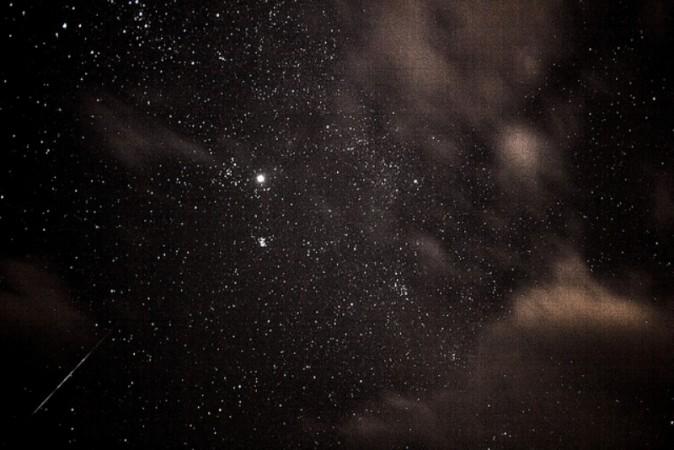![[Representative Image] The sky during a meteor shower Geminid Meteor Shower](https://data1.ibtimes.co.in/en/full/550530/geminid-meteor-shower.jpg?h=450&l=50&t=40)
This weekend, stargazers will witness "one of the most beautiful meteor showers of the year." The Orionids meteor shower or the shooting stars will reach its peak this weekend and light up the sky, as Earth will move through the debris of the famous Halley's Comet.
The meteor shower will peak on Friday night until Sunday night, i.e. between October 20 and October 22. The Orionids meteor shower is one of the fastest and brightest among other showers because of the debris of Halley's Comet.
This meteor shower appears every year and produces up to 20 to 30 meteors per hour. During the peak time, it can also produce 80 meteors an hour and light up the sky for the entire weekend.
"The Orionids is a modest shower, producing around 20 meteors per hour at best under absolutely perfect conditions," Tom Kerss, an astronomer at the Royal Observatory Greenwich, said, according to The Independent.
"In reality, you'll see far fewer, because your local conditions are variously less than ideal, but Orionids meteors are known for their speed and brilliance, so if you persevere there's a good chance you'll see several bright 'shooting stars' zipping across the sky."
How and when to view the shooting stars
Stargazers can spot the meteors across the sky from anywhere on Earth. The best timing to spot shooting stars is after midnight and before dawn. Lie back to watch the shooting stars and use of binoculars and telescopes will not improve the view.
However, NASA meteor expert Bill Cooke told Space.com that don't look straight at the spot "because meteors close to the radiant have short trails and are harder to see — so you want to look away from Orion."

Live streaming information
For those who will not be able to witness "one of the most beautiful meteor showers of the year" in the night's sky can watch the event live online. Slooh, robotic telescope service, will be live streaming the event online.
The live streaming will begin at around 1 am BST on Saturday (8 pm EDT on Friday) and Observatory Director and Chief Astronomical Officer Paul Cox, astronomer Bob Berman and Dr Paige Godfrey will host it.

















